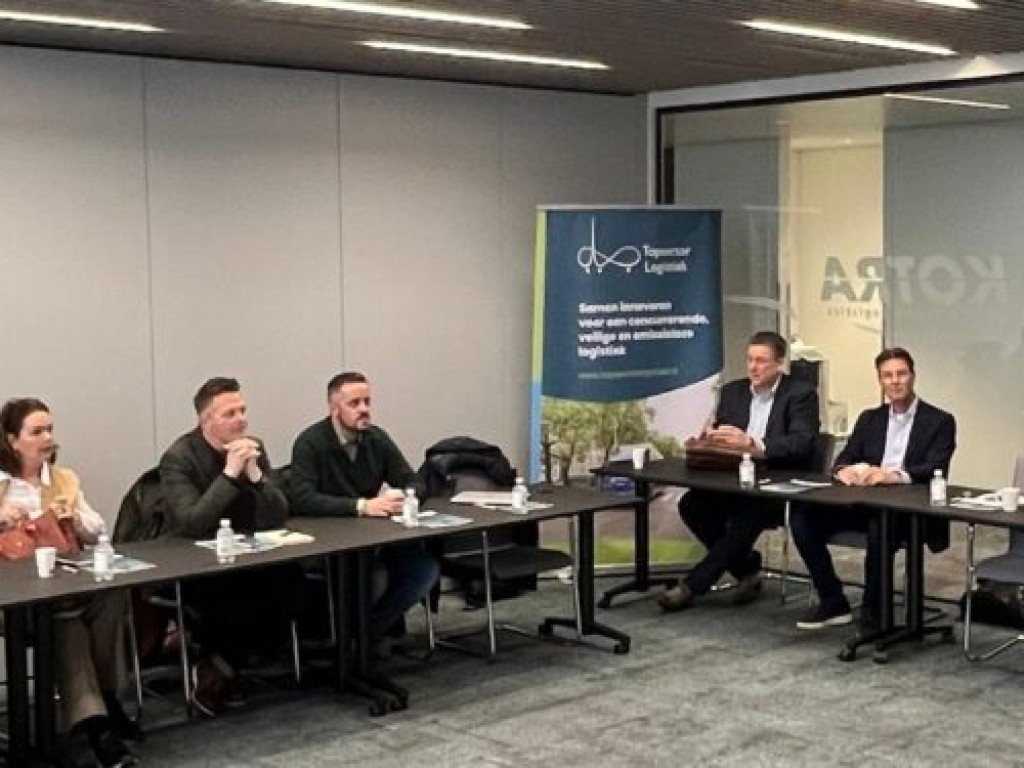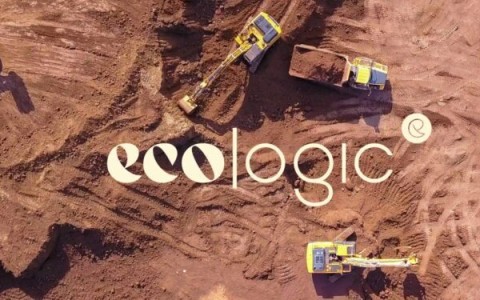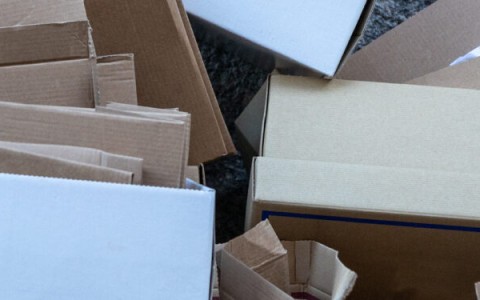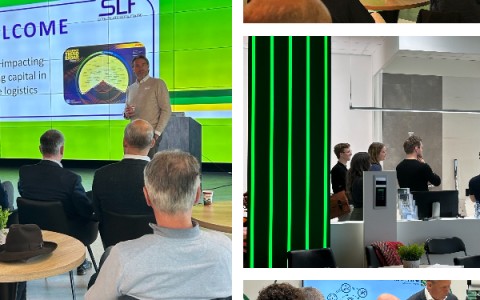Zeeland region visit: Innovation and Cooperation in Logistics of the Future

On 30 January, TKI Dinalog, Top Sector Logistics, ROM-Nederland and Impuls Zeeland organised a region visit in Zeeland, focusing on the future of logistics in the region and cooperation between businesses, knowledge institutions and policymakers. The visit offered valuable insights into the strengths of Zeeland, as well as the challenges the region faces in logistics.
The morning programme began with a round-table meeting at Kotra Logistics, where Ida Sinke (Kotra), Rick Suurmond (Impuls Zeeland) and Iris Vis (Captain of Science Topsector Logistiek) welcomed attendees.At the table, representatives from various companies, knowledge institutes and industry associations met to discuss how Zeeland can further exploit its logistics strength.
Zeeland has several logistical advantages, such as the deep sea port North Sea Ports, multimodal facilities and strong sectors, including the onion, potato, chemical and food industries. It was highlighted that Zeeland accounts for as much as 20% of global onion exports. Participants praised the region for its social innovation, where cooperation and short lines of communication are essential. Zeeland also has a number of well-connected and finely meshed supply chains and strong collaborations with knowledge institutions such as the Joint Research Centre in Middelburg. Zeeland is also known for its pragmatic mentality, which often leads to effective results.
Yet there are several challenges on the agenda. The labour market is shrinking due to falling student numbers and a changing work ethic, while at the same time there is strong competition to attract talent from other regions. Besides infrastructure issues such as traffic bottlenecks, a lack of long-term vision in laws and regulations is also highlighted. Moreover, Zeeland's logistical assets, such as North Sea Ports, are still insufficiently known. The digitisation and robotisation of SMEs calls for concrete solutions, as many companies are struggling to make the transition to the new technologies.
In the afternoon, a round table meeting with policymakers from the province, municipalities and other organisations such as Zeeland Connect and Impuls Zeeland took place at the Province House in Middelburg. During this discussion, the strong logistics elements of Zeeland were further discussed, such as the strategic location between Rotterdam, Antwerp and Ghent, and the realisation power that comes from short lines between policymakers and business, and a pragmatic approach.
However, the region faces a number of demographic challenges such as an ageing population and structural labour shortages. As a solution direction, Zeeland was presented as a 'living lab' for innovative labour solutions. B Major concerns include the phasing out of the Logistics lectureship at Hogeschool Zeeland and the complexity of grant applications, which hinders further knowledge development and innovation in the region. In addition, the energy transition requires investments in charging infrastructure and making inland navigation more sustainable.
At regional level, mobility bottlenecks were further discussed, including the Zeeland Bridge and the increase in freight traffic through the Westerschelde Tunnel, for which strategic solutions are needed. Housing issues for migrant workers and truck drivers were also raised, as was the need for consistent policies to further promote energy transition and logistics innovation.
The region visit highlighted the need for focused cooperation and long-term vision to further develop Zeeland as a leading logistics and technology hub. By improving knowledge sharing and simplifying regulations, Zeeland can further raise its profile as an innovative region.


